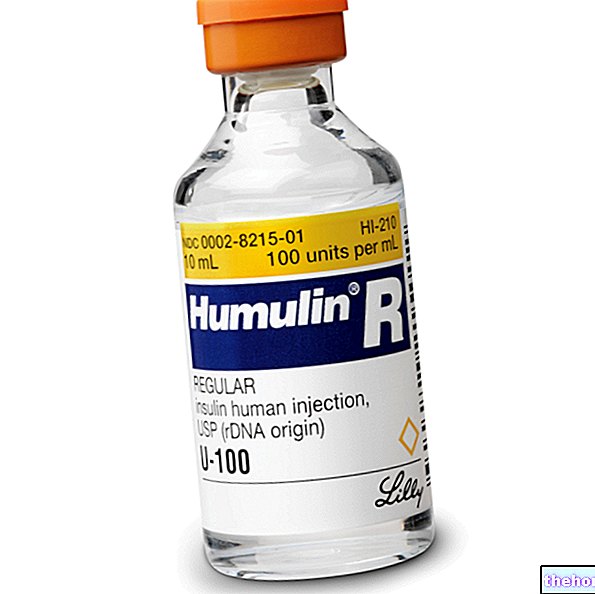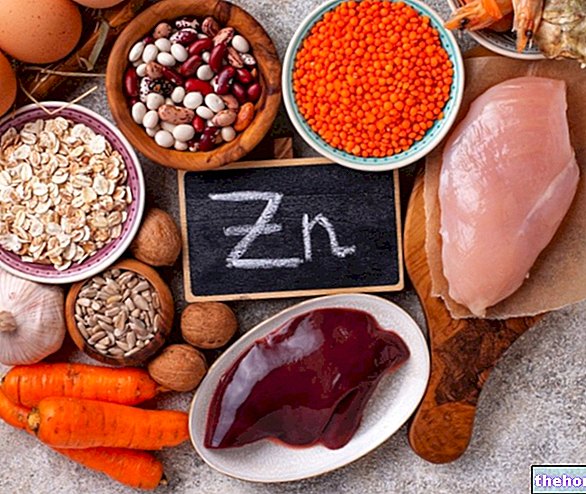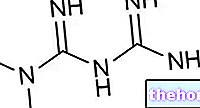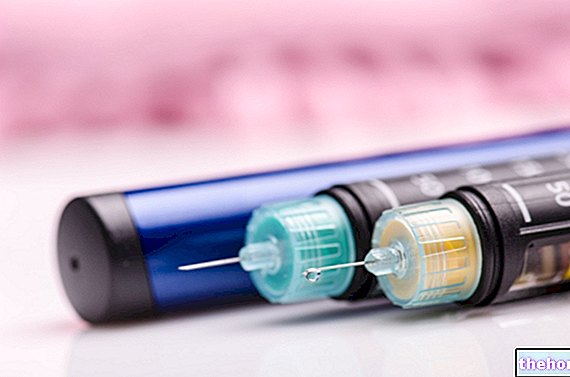INSUMAN ® a drug based on human insulin
THERAPEUTIC GROUP: Human insulin for injectable use with regular action

Indications INSUMAN ® Human soluble insulin
INSUMAN ® is a hypoglycemic drug based on human insulin useful in the treatment of diabetes mellitus, hyperglycemic coma, ketoacidosis and gestational diabetes.
Mechanism of action INSUMAN ® Human soluble insulin
The insulin contained in INSUMAN ® produced through the recombinant DNA technology in E.Coli, perfectly reflects the structure of the endogenous hormone, thus constituting the so-called soluble human insulin.
As such it is injected subcutaneously, showing its therapeutic action after about 30 minutes, with an optimization of the activity within the first four hours and a maximum duration of action of nine hours.
Despite the aforementioned pharmacokinetic characteristics, the "half-life of blood insulin is very short, of about 4 - 6 minutes, as it is capable of rapidly binding the insulin receptors expressed by sensitive insulin tissues such as adipose and muscle and activating intracellular pathways involved in" optimization of the intake and consumption of blood glucose.
At the muscle level, in fact, glycolysis, proteosynthes, glycogen synthesis are promoted and glycogenolysis and proteolysis inhibited, while at the adipocyte level the lipogenesis mechanism is triggered.
The hypoglycemic action of insulin is also expressed in the liver, where it acts as an inducing hormone of enzymes involved in glycogen synthesis and lipogenesis, thus inhibiting lipolysis, glycogenolysis and gluconeogens, capable of inducing a glycemic increase.
Studies carried out and clinical efficacy
1. INSULIN AND DOPING
Endocrinol Metab Clin North Am. 2010 Mar; 39: 33-43, viii.
Insulin-like growth factor I and insulin and their abuse in sport.
Erotokritou-Mulligan I, Holt RI.
Different hormones are used by unhealthy professional athletes in the harmful and unsportsmanlike practice of doping. Recent evidence suggests the growing role of IFG1 and insulin in sports, useful for improving muscle structures by inducing both protein synthesis and a significant increase in muscle glycogen stores. Different tests, more and more precise and reliable, some of which also use the genetic aspect, try every day to fight against this incorrect practice.
2. INSULIN AND NEW RECRUITMENT MECHANISMS
Expert Opin Drug Deliv. 2008 Sep; 5: 1047-55.
Delivery of insulin to the buccal mucosa utilizing the RapidMist system.
Bernstein G.
The growing number of diabetic patients, both first and second type, who need insulin therapy to ensure good glycemic control is pushing pharmaceutical companies towards the formulation of new delivery tools that can allow a faster and easier intake of this hormone. Researchers are currently examining new techniques such as aerosolized insulin and liquid insulin to be taken through the buccal mucosa, which, however, do not yet produce the expected results.
3. ACUTE ISCHEMIC STROKE AND HYPERGLYCEMIA
J Clin Neurol. 2009 Dec; 5: 167-72.
Aggressive glucose control for acute ischemic stroke patients by insulin infusion.
Kim N, Jhang Y, Park JM, Kim BK, Kwon O, Lee J, Lee JS, Koo JS.
The hyperglycemia following acute ischemic stroke is often characterized by an unfortunate course that is difficult to treat. This study suggests a regular intravenous infusion protocol capable of significantly improving blood glucose levels and bringing them back to normal.
Method of use and dosage
INSUMAN ® 100 IU / ml solution for injection 5 ml bottles: although there are reference ranges for insulin therapy, which generally range from 0.5 IU to 1 IU per kg of daily body weight for diabetic patients of the first type and from 0.3 to 0.6 IU per kg die for diabetic patients of the second type, the formulation the precise dosage should be established by the doctor after a "careful evaluation of the patient's physio-pathological state and his glycemic balance.
INSUMAN ® should be injected under the skin generally in the abdominal area approximately 30 minutes before a carbohydrate meal.
Uses other than subcutaneous use are intended for hospital medical personnel.
Warnings INSUMAN ® Human soluble insulin
The success of insulin therapy is strongly correlated to the active participation of the patient in the therapeutic process, therefore to medical supervision.
It is advisable for the patient to be informed and at the same time apply all the necessary provisions to ensure proper preparation, storage and injection of the drug, who can recognize the first signs of hypoglycemia and take action to avoid worsening symptoms .
It is evident that an incorrect dosage formulation could cause serious consequences for the patient's health, with hypoglycemic crises in the case of too high dosages and hyperglycemia accompanied in the most serious cases by diabetic ketoacidosis in too low dosages.
For the same reason, suspensions, changes or adjustments of the dosage should be supervised by the physician.
In case of impaired renal function it may be necessary to reduce the dose of the drug used.
The possible onset of hypoglycemia could reduce the patient's perceptive abilities, making the use of machinery and driving cars dangerous.
PREGNANCY AND BREASTFEEDING
Insulin represents the only possible therapeutic approach to gestational diabetes.
The excellent safety profile observed for this hormone is evidently due to the inability to cross the placental barrier, safeguarding the metabolic characteristics of the fetus.
INSUMAN ® can therefore be used during pregnancy, naturally under strict medical supervision.
Interactions
The hypoglycemic effect of human insulin can be significantly affected by the concomitant intake of different active ingredients.
For example, the concomitant administration of oral hypoglycemic agents, octreotide, anti-MAO, beta blocking agents, ACE inhibitors, salicylates, alcohol and anabolic steroids, could increase the hypoglycemic effect of insulin subjecting the patient to numerous risks.
On the contrary, taking oral contraceptives, thiazides, glucorticoids, thyroid hormones and sympathomimetics could reduce the therapeutic effect of INSUMAN ®.
In both cases, therefore, it is necessary to adjust the dosage to keep the glycemic balance under control.
Contraindications INSUMAN ® Human soluble insulin
INSUMAN ® contraindicated in case of hypoglycemia and hypersensitivity to human insulin or its excipients.
Undesirable Effects - Side Effects
Subcutaneous administration of soluble human insulin is often associated with adverse reactions of varying clinical severity and of a local or systemic nature.
Among the most important side effects of localized interest it is possible to observe the presence of redness, pain and itching at the injection site or of lipoatrophy following the non-rotation of the injection points.
The systemic effects, on the other hand, may be due to generalized hypersensitivity reactions with gastrointestinal disorders, edema, breathing difficulties, palpitations and hypotension.
However, hypoglycemia remains the most frequent and riskiest side reaction for human health, characterized by cold sweat, skin pallor, nervousness, tremors, anxiety, tiredness, weakness, confusion, difficulty concentrating, headache, nausea, palpitations, visual disturbances and in the most serious cases, loss of consciousness and death.
Note
INSUMAN ® sold only under medical prescription.
INSUMAN ® falls within the doping class: Hormones and related substances (prohibited in and out of competition).
The information on INSUMAN ® Human Soluble Insulin published on this page may be out of date or incomplete. For a correct use of this information, see the Disclaimer and useful information page.









.jpg)


















